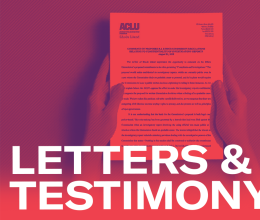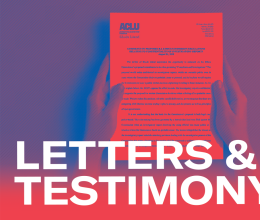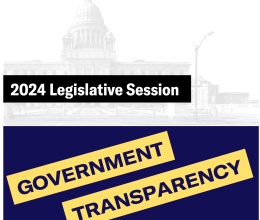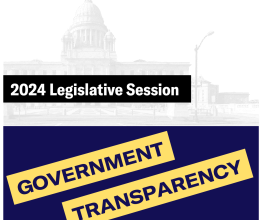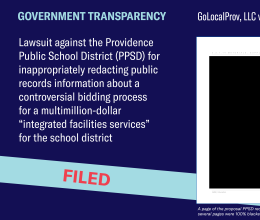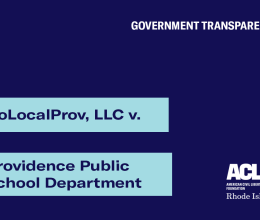Seeking to halt a disturbing trend by public bodies to unlawfully meet in private, the RI ACLU has, for the second time in six months, filed an Open Meetings Act (OMA) lawsuit against a school committee for violating the law’s provisions governing the holding of executive sessions.
Today’s lawsuit, filed against the East Providence School Committee, alleges that the committee illegally met in private on September 8, 2009 to allegedly discuss what it called a “Public Comment Lawsuit.” However, the ACLU lawsuit notes, “there was not and never has been any ‘Public Comment Lawsuit’ filed against the Committee.” In fact, when the ACLU filed an open records request to obtain copies of any documents related to this so-called “Public Comment Lawsuit,” the school committee responded that no such documents existed.
Over the past several years, the School Committee has adopted and revised a series of policies directed at controlling public comment at their meetings. Many residents have raised objections to those policies. In April 2009, the Committee adopted a new policy, requiring people desiring to speak at Committee meetings to submit a formal written request at least one week prior to the meeting. This policy, like previous ones, generated significant controversy in the community. A few months later, the Committee held its mysterious executive session to discuss a “public comment lawsuit” that apparently never existed. The ACLU suit alleges that there was no actual or threatened litigation over the Committee’s “public comment” policy when the executive session was held, as demonstrated by the lack of any documents relating to any such litigation.
Today’s suit was filed by RI ACLU volunteer attorneys Howard Merten and Keith Fayan on behalf of both of the ACLU and East Providence resident and former state legislator Paul Moura, who has been critical of the school committee’s “public comment” policies. The lawsuit, filed in R.I. Superior Court, seeks an order declaring the school committee’s executive session a violation of the open meetings act and directing the school committee to unseal the executive session minutes from that meeting. The suit also seeks an award of attorneys’ fees and imposition of a fine against the school committee for violating the law.
Last August, the ACLU filed a suit challenging a closed meeting the Barrington School Committee held to discuss the merits of instituting a mandatory breathalyzer policy for all students attending school dances. Like East Providence, the school committee also relied on the “litigation” exemption to meet in private, when at the time of the executive session there was no litigation pending or threatened and there was not even a specific policy in place that could have been challenged through litigation. Last month, R.I. Superior Court Judge Brian Stern denied the Barrington School Committee’s motion to dismiss that suit.
ACLU attorney Merten said today: “This is the second suit recently filed by the RI ACLU contesting public bodies meeting in secret executive session. This case, much like the Barrington case, challenges the School Committee’s claim that a secret executive session was necessary to discuss litigation that did not exist and has never been filed. The public’s right to observe their elected officials at work is threatened by this type of misplaced reliance on a narrow exception contained in the open meetings statute.”

